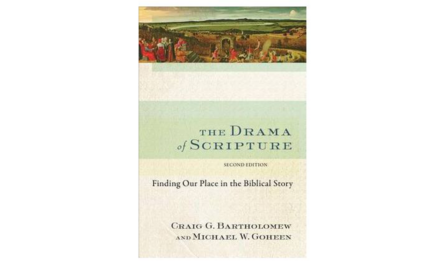By Erick Muriithi
A common question among evangelicals is, since God is immutable, how can it be said in the Bible that he regretted or repented? Genesis 6:6 BSB for example says: “And the Lord regretted that He had made man on the earth, and He was grieved in His heart.”
The verse seems to go against two of the incommunicable attributes of God, that is, the attributes that make God, God. These are the immutability of God (God cannot change) and the impassibility of God (God cannot suffer). It is indeed such a verse that has been listed as a contradiction in Holy Scripture, when compared to verses such as in 1 Samuel where after God rejected Saul, it is said of Him that He will not repent or change his mind.
I shall endeavour to show that these are not contradictory, but such as that can be explained and harmonised just as every other supposed contradiction in Scripture.
First, I must state that there is a difference between a paradox, a contradiction and a mystery. A mystery is something that is beyond understanding. A paradox is something that is seemingly contradictory but is apparently true and thus is not a contradiction since it does not defy the laws of logic; especially the law of identity and that of non-contradiction.
So then we must assert three things:
1. That God is immutable in his plan. The plan that God has is the plan He had in eternity past, and is the plan he is carrying out to eternity future. There is no plan B with God. Only one plan and one alone. Given that God has perfect knowledge, there can be no such thing as can come into God’s mind that is new to alter his plan. Given that He has immediate knowledge, God has no need to calculate. Given that He has all possible knowledge, God then is the originator of a perfect plan.
2. That God is impassable. This simply means that nothing can happen to God. He is not affected by happenstance. There are no incidents and accidents in God. God cannot suffer. He is perfectly at rest; perfectly unaffected by circumstances. He does not have passions (emotions caused by happenstance) so then in these two senses, God cannot regret.
3. That God is a simple being. I do not imply that God is a simpleton, or that He is pretty easy to understand but that He is the very attributes that describe him. He is easy to know because He has revealed himself in His word. But he is unfathomable. Any attribute that God has, God is. God is not 50 percent love and 50 percent holy and 30 percent eternal. No. God is holy, eternal, immutable, impassible; he is spirit, he is wise, he is omnipotent, he is omniscient. Every attribute of God is perfectly, not only in line with His nature but is in essence, his nature. Hence, there can be no essential change in God. If God could change, He would no longer be God. God is perfect; He does not need to change. Since there is no attribute of His that is not His nature, then there is no attribute of His that can change.
Therefore, how can we reconcile these verses?
1. God does in time what he has decreed in eternity. No circumstance takes place in time but such as God has already decreed in eternity. Hence all those verses where He is said to relent and repent, He has decreed to do in eternity, which should then lead us to interpret these verses in light of this knowledge. Our arguments must always be from ontology and not from semantics.
2. Anthropopathic language. This might sound like a big word but it is just a combination of two Greek words — the Greek word for man anthropos (the study of man and cultures is called anthropology) and the Greek word for passions pathos. (A lack of passion is called apathy — simply a failure to display pathos). So when we say anthropo-pathic language, we simply mean that the Bible communicates what God does in human terms. It is analogical language. It communicates it by analogy. God has communicated to us in a way that we can understand in the Bible. What an act of grace!
When God is said to repent or relent, it doesn’t simply mean that there was a change in God, or that He did not do what He intended to do but that He did that which he intended to do from eternity past, but that can only be understood as relenting in human terms. Consider that it is the same as the parts of the Bible that say God rode on a cherub and flew (Psalm 18), or He rides on the clouds. These simply speak of God in anthropomorphic language, or language that describes events as the human eye sees them. Same way we say the sun rises in the east.
But what about Jesus, wasn’t He God? Didn’t He suffer and die? The answer is that Jesus had two natures. He was truly God and truly man. Under what we call the communication of properties what can be said of His divine nature can be said about the person of Jesus, but it cannot be said of His human nature, and vice versa. At the cross, His divine nature did not die or suffer. It was His human nature that experienced suffering, and since it is His nature, we can say that Jesus died.
The problem is that our preaching has become man-centered and many people do not take time to think about the big things of God, or what I would call Big God theology. We preach the gospel as it stands to benefit man, with a little God in the middle. But we need Big God theology back. Only the highest view of God gives us an accurate view of ourselves and our sin and the surpassing worth of knowing Christ.
Eric Muriithi is a writer and Bible student who loves to engage in both polemic and apologetic discussions. He is involved in campus ministry at Egerton University, Kenya. You can find his other articles at https://erickmuriithi.art.blog/author/erickmuriithi/



